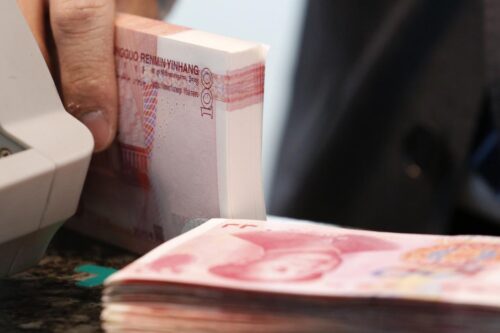>>REAL-TIME UPDATES IN THE WIRE. CLICK HERE<<<
China’s new bank loans reached 1.36 trillion yuan in August, while aggregate financing reached 3.12 trillion yuan, both slightly exceeded market expectations, said CICC in a note.
Credit growth was partly driven by short-term loans and bills financing, likely indicating that private-sector credit demand has not yet recovered, and the year-on-year contraction in medium- and long-term lending to the household and corporate sectors continued, it said.
The interest rates on existing mortgage loans was lower late August, but the rate may still be higher than the yields on financial products, so it remains to be seen whether the pace of early mortgage repayments will slow down, it noted.
Fiscal expansion is the main driving force for the rebound in social financing, with faster progress in the disbursement of related financing and accelerated policy momentum, it said. Net government bond financing reached 1.18 trillion yuan in August, rising by 871.4 billion yuan from a year ago, and urban village redevelopment is expected to become a major driver to stabilise growth, CICC said.
Quasi-fiscal financing may also be accelerating and non-financial corporations raised a net of 269.8 billion yuan in bond financing, increasing by 118.6 billion yuan from a year ago, with the bulk of the increase likely in municipal bonds, which raised 198.4 billion yuan, an increase of 61.3 billion yuan on year, it said..
Despite the rise in net government financing, CICC did not see a significant rise in government deposits, with fiscal deposits falling by 8.8 billion yuan, suggesting that government financing is being disbursed more quickly and policy momentum is accelerating again, it added.

